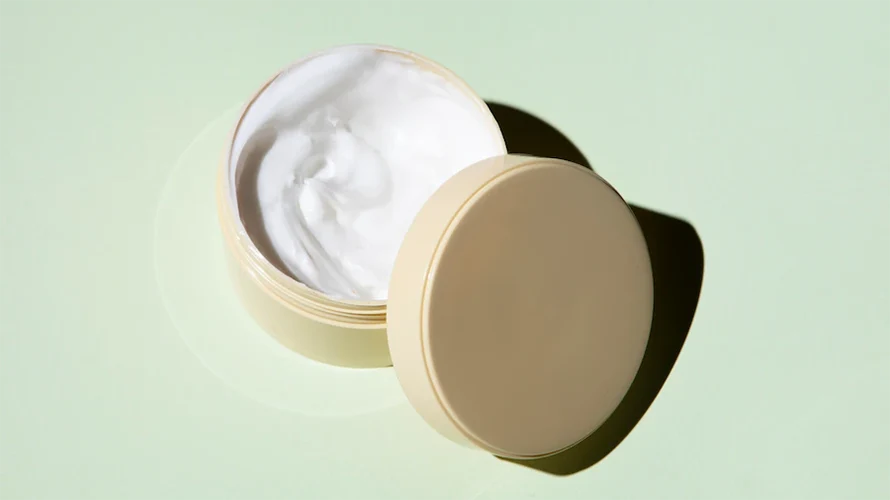How Can We Make Skincare Packaging More Sustainable

Founder of UKPACK, Chief Packaging Designer with 18 years of experience, Red Dot Award Winner
Specialize in custom, innovative, and sustainable packaging solutions for cosmetics, skincare, personal care, hair care, food and beverage, and more.

The skincare industry is constantly growing, and as a result, the packaging waste is becoming a major environmental concern. Traditional skincare packaging materials like plastic and glass have a significant negative impact on the environment. Fortunately, there are sustainable skincare packaging alternatives available that can help reduce the impact of packaging waste.
In this blog post, we will discuss how we can make skincare packaging more sustainable and eco-friendly.
Current State of Skincare Packaging
Before we discuss sustainable alternatives, let’s take a look at the most common types of skincare packaging materials and their impact on the environment.
Plastic packaging
Plastic is the most common material used for skincare packaging. It is lightweight, durable, and inexpensive, making it a popular choice for skincare brands. However, plastic takes hundreds of years to decompose, and it poses a significant threat to wildlife and the environment. According to a report by the Ellen MacArthur Foundation, by 2050, there will be more plastic in the ocean than fish.
Glass packaging
Glass is another popular material used in skincare packaging. It is recyclable, but it requires a lot of energy to produce and transport. Additionally, it is fragile and can break easily, leading to more waste.
Paper packaging
Paper packaging is a biodegradable and renewable resource. However, it requires a lot of energy and resources to produce, and it may not be as durable as other materials.
Sustainable Alternatives for Skincare Packaging
Now that we understand the environmental impact of traditional skincare packaging materials, let’s explore sustainable alternatives.
Bamboo packaging
Bamboo is a fast-growing, renewable resource that can be used for skincare packaging. It is biodegradable, compostable, and has a low carbon footprint. Additionally, it is lightweight and durable, making it a practical choice for skincare brands.
Biodegradable plastics
Biodegradable plastics are made from natural materials like cornstarch or potato starch, which means they can be broken down by microorganisms in the environment. They are a sustainable alternative to traditional plastics, and they have a lower environmental impact. However, it’s important to note that biodegradable plastics may still take several years to decompose, depending on the conditions.
Compostable materials
Compostable materials are made from natural, plant-based materials that can be broken down into organic matter. They are a sustainable alternative to plastic, and they can be composted at home or in an industrial composting facility. Compostable materials include materials like cornstarch, sugarcane, and potato starch.
Glass packaging with recycled content
While glass may not be the most sustainable option, using glass packaging with recycled content can reduce the environmental impact. Recycled glass requires less energy and resources to produce, and it reduces waste by giving new life to used glass.
Aluminum
Aluminum is a highly recyclable material widely used in skincare product packaging, such as aluminum tubes and cans, offering excellent protection and sealing. Additionally, aluminum is also utilized in the production of aluminum foil containers, primarily for food packaging, due to its durability and lightweight nature.
Consumer Education and Behavior
While sustainable packaging alternatives are essential, consumer behavior and education are also crucial in reducing the impact of packaging waste. Here are some tips for consumers:
1. Look for brands that use sustainable packaging materials
Many skincare brands are making an effort to use eco-friendly packaging materials. Look for brands that use biodegradable or compostable materials, recycled content, or sustainable materials like bamboo.
2. Opt for packaging-free products
Some skincare brands offer packaging-free products, which means you can purchase the product without any packaging. This can help reduce waste significantly.
3. Properly dispose of packaging
It’s essential to dispose of packaging properly, including recycling materials that can be recycled and composting materials that are compostable. Be sure to check the labeling and packaging instructions to ensure you are disposing of the materials correctly.
4. Reduce overall consumption
Reducing overall consumption of skincare products can significantly reduce waste. Consider purchasing multi-use products that can be used for multiple purposes, or products that are designed to last longer. Additionally, try to use up all of the product before purchasing a new one, and only purchase what you need.
5. DIY skincare
Consider making your own skincare products using natural ingredients. This can significantly reduce packaging waste, and it allows you to control what ingredients are in your skincare products.
Conclusion
In conclusion, the skincare industry must make an effort to reduce the impact of packaging waste on the environment. Sustainable packaging alternatives like bamboo, biodegradable plastics, compostable materials, and glass with recycled content are available, and they can significantly reduce the environmental impact of skincare packaging.
Additionally, consumer education and behavior are crucial in reducing the impact of packaging waste. By making a conscious effort to purchase sustainable skincare products and properly dispose of packaging, we can all make a difference in reducing the impact of packaging waste on the environment.
